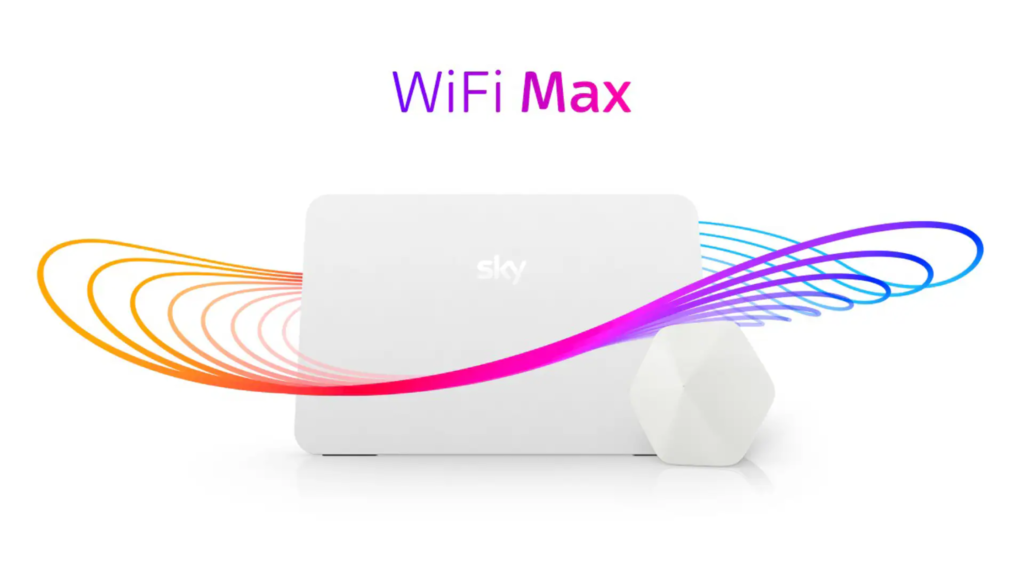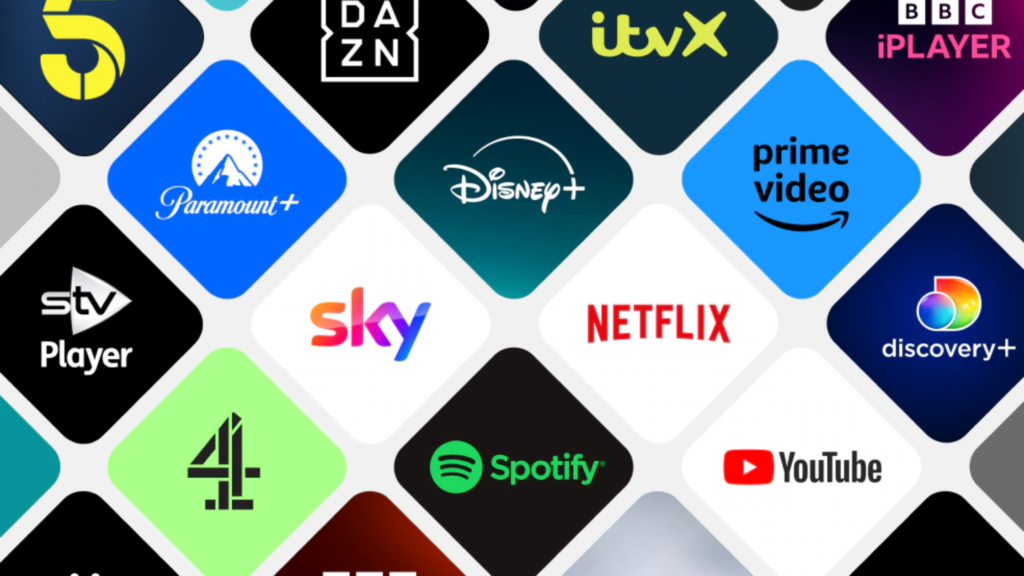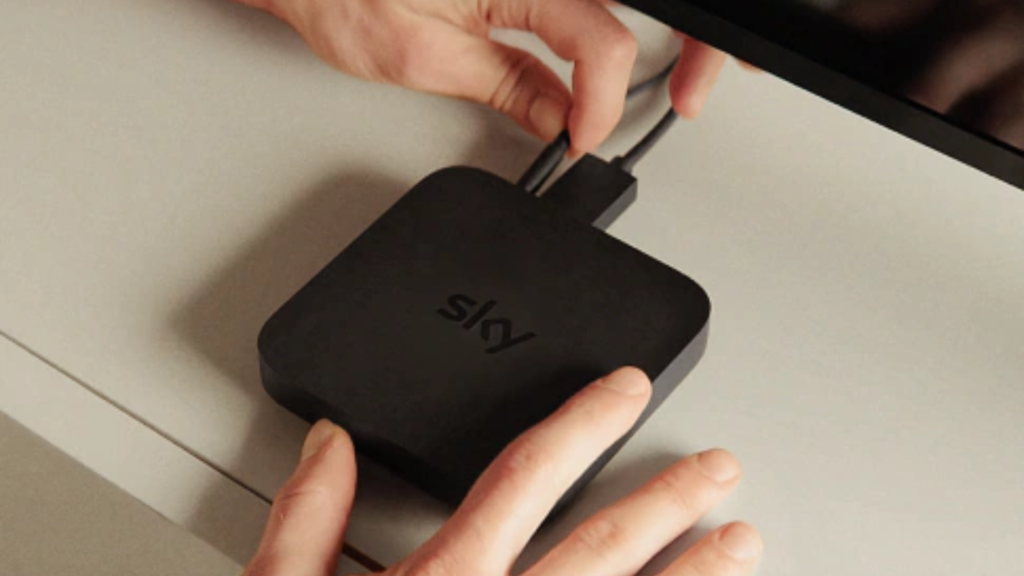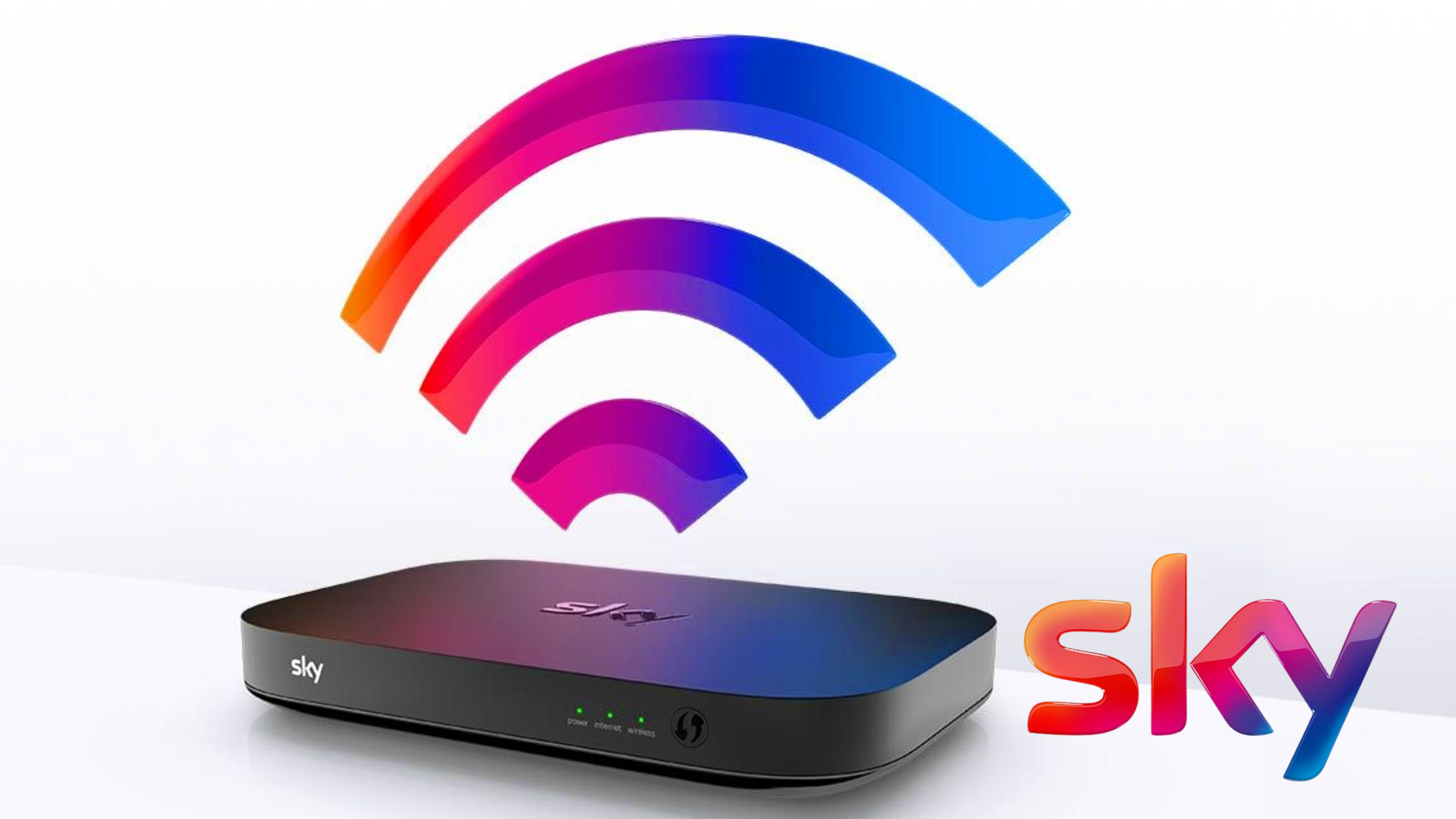Choosing a broadband provider shouldn’t feel like decoding a puzzle, but with so many flashy deals and fine print, it often does. Everyone promises speed, reliability, and value—yet real-life performance rarely matches the marketing. That’s why it’s worth taking a closer look at Sky Broadband.
Sky has long been a familiar name in the UK, thanks to its strong presence in TV and entertainment. Over time, it’s expanded into broadband with a range of packages that claim to cover everything from casual browsing to heavy-duty streaming and gaming.
What really matters, though, is how it performs in the areas people care about most: consistent speed, fair pricing, and reliable customer service. With more homes relying on strong internet connections every day, it’s important to know if Sky still holds up in today’s fast-moving digital world.
Key Highlights of Sky Broadband
Sky Broadband is built on simplicity, reach, and consistency. Its packages cater to a wide range of internet users, from light web surfers to heavy data users. Here are the standout features that define the Sky experience.
Speed and Performance
Sky offers broadband packages with average download speeds starting from 61Mbps and going up to 900Mbps. These speeds are suitable for:
- Standard users: Streaming in HD, browsing, and using social media.
- Remote workers: Video conferencing, file sharing, and cloud-based tools.
- Gamers and streamers: Low latency and enough bandwidth for multiplayer gaming and 4K content—though it helps to know which broadband suits heavy streamers and gamers best before locking in a plan.

Thanks to its fibre connections (FTTC and FTTP), Sky’s performance is generally stable even during peak evening hours. Upload speeds range from 16Mbps on Superfast to around 100Mbps on Gigafast, which is a notable advantage for content creators and home workers.
Package Variety
Sky Broadband keeps things streamlined with three core options that cover a wide range of internet needs. Instead of overwhelming you with too many plans, it focuses on simplicity—offering one for everyday browsing, one for high-demand households, and one for ultra-fast, future-ready connections.
Each package scales logically in speed and capability. Superfast is widely available and suits smaller homes. Ultrafast brings a noticeable boost for families or remote workers who need more consistent performance across multiple devices. If you’re considering a speed upgrade, there are clear reasons to switch to ultrafast broadband that go beyond just faster downloads. Gigafast, where available, delivers top-tier performance for data-heavy users or smart home setups.
This clear tiered approach makes it easier to choose a plan based on how many people live in your home, how many devices are online, and what you use the internet for day-to-day.
Availability and Coverage
Sky uses the Openreach network, which covers approximately 96% of UK homes for standard fibre (FTTC) and continues to expand full fibre (FTTP) coverage.
- Urban areas: Most have access to Superfast and Ultrafast, with increasing access to Gigafast.
- Rural areas: May have access only to Superfast or standard ADSL, depending on infrastructure.
Sky also includes a postcode checker to help users see the best available options in their area, ensuring realistic expectations on speed and availability.
Performance in Real Life
Sky Broadband performs well in real-world situations, offering stable connections for the activities that matter most—streaming, gaming, and sharing files. While results can vary slightly depending on your plan and location, most users experience dependable service throughout the day.
Streaming and Video Calls
Streaming is smooth across most Sky Broadband packages. Services like Netflix, YouTube, and Prime Video load quickly and play in HD or 4K with minimal buffering, especially on Ultrafast and Gigafast plans.
For smaller households using Superfast, streaming remains stable unless multiple devices are running high-demand apps at the same time.
Video calls on Zoom, Teams, or Google Meet are reliable and clear. Higher-tier packages with better upload speeds offer an even smoother experience, especially when screen sharing or hosting group calls. Remote workers and students will notice the difference here.
Online Gaming Experience
Gamers will find Sky Broadband holds up well across most platforms. Average latency stays within a respectable range of 10–30ms, which is low enough for competitive online gaming.
- Xbox, PlayStation, and PC users report minimal lag or disconnections.
- Gigafast users benefit from lightning-fast responses, but even Superfast is suitable for casual gaming—provided others in the household aren’t using up bandwidth at the same time.
Overall, Sky’s network provides a responsive and consistent gaming experience.
Downloading and Uploading
Download speeds generally match what’s advertised, particularly on fibre plans. This makes downloading apps, games, movies, and large documents fast and reliable.
Uploading is where higher-tier plans stand out. With upload speeds around 27Mbps on Ultrafast and up to 100Mbps on Gigafast, tasks like:
- Backing up to cloud storage
- Uploading videos or photos
- Sending large work files
become significantly faster and more efficient.
Those using Sky’s full fibre packages also enjoy more symmetrical speeds, which is a key advantage for content creators and remote teams relying on frequent uploads.
Sky Broadband Packages Explained
Sky offers three core broadband packages designed to meet different household needs. Each plan differs in speed, capacity, and value—so understanding what you’re getting helps avoid overpaying or underestimating your needs.
| Package | Download Speed | Upload Speed | Technology | Best For | Ideal Users |
|---|---|---|---|---|---|
| Sky Superfast | Avg. 61Mbps | Avg. 16Mbps | FTTC | Browsing, HD streaming, video calls | Small households (1–3 users) |
| Sky Ultrafast | Avg. 145Mbps | Avg. 27Mbps | G.fast / FTTP | 4K streaming, gaming, remote work, multiple smart devices | Medium to large households (3–6 users) |
| Sky Gigafast | Up to 900Mbps | Around 100Mbps | FTTP only | 8K streaming, heavy uploads, low-lag gaming, smart homes | Large or shared homes, creators, tech-heavy users |
Each plan is designed to fit different digital lifestyles. Superfast covers basic internet needs affordably, Ultrafast balances speed and performance for family homes, and Gigafast offers ultra-fast, future-ready connectivity for the most demanding users.
Equipment and Installation
Sky aims to make setup as straightforward as possible, offering a decent router out of the box and flexible installation options. From hardware features to WiFi upgrades, here’s what to expect once you sign up.
Sky Broadband Hub Features
The Sky Broadband Hub is included with all broadband packages and offers a solid set of features for everyday use. It comes with:
- Dual-band WiFi (2.4GHz and 5GHz) for better range and performance
- Smart Signal technology that helps devices connect to the strongest available frequency
- Four Ethernet ports for wired connections
- Automatic firmware updates and parental controls built in

While not as advanced as some third-party routers, it competes well with what BT and Virgin offer. The BT Smart Hub 2 includes mesh compatibility and slightly stronger range, while Virgin’s Hub 5 offers more advanced WiFi 6—but for most households, Sky’s hub performs reliably without fuss.
Installation and Activation
Sky offers two setup options depending on the type of broadband and property requirements:
- Self-installation is available for most fibre customers. You’ll receive your equipment by post, along with simple instructions. Most users complete the setup in under 30 minutes using existing Openreach sockets.
- Engineer visits are required if a new line needs to be installed or upgraded. The process is typically scheduled within 10–14 days of ordering and takes about an hour on-site.
Sky’s activation process is generally smooth, and customers receive text updates about their delivery and go-live date. You can also track installation progress via the My Sky app.
Sky WiFi Max Add-on
Sky offers an optional WiFi Max add-on, aimed at households needing stronger, more consistent wireless coverage. It includes:
- A second, upgraded Sky Max Hub (WiFi 6 support)
- WiFi guarantee with signal coverage in every room or money back
- 24/7 tech support via a dedicated team
It’s an extra monthly cost, but for larger homes or places with signal black spots, the improved coverage and dedicated support can be worth it—especially if you’re relying heavily on WiFi for work, streaming, or smart home devices.
Pricing and Contracts
Sky Broadband offers competitive pricing across its packages, but it’s important to look beyond the headline figures. Understanding what’s included, how long you’re tied in, and any potential changes down the line can save frustration later.
Monthly Fees and Setup Charges
Sky’s pricing is generally clear, with each broadband plan showing a fixed monthly fee during the minimum contract period. Here’s what you can typically expect:
- Sky Superfast: Entry-level pricing, often around £30–£35 per month
- Sky Ultrafast: Mid-tier plan, ranging between £38–£45
- Sky Gigafast: Premium speed, priced between £50–£55
Sky usually includes the Broadband Hub for free, though a one-time setup or activation fee (around £10–£20) may apply, depending on the promotion.
Line rental is included in the monthly cost, which simplifies the billing. However, customers adding extras—like TV bundles or the WiFi Max add-on—will see their monthly fees increase accordingly.

Contract Length and Flexibility
Sky Broadband contracts typically run for 18 months, which is fairly standard in the UK market. During this time, your price is fixed, and you’re committed to the service unless you pay early exit fees.
- Cancellation fees vary based on remaining contract time but are calculated per day left on your agreement.
- Switching is generally straightforward if you move to another Openreach-based provider like BT or TalkTalk.
Sky doesn’t currently offer flexible rolling monthly plans, so it’s best suited for users comfortable with a longer-term commitment.
Hidden Costs and Promotions
Promotional pricing is common with Sky—introductory offers often lower the first 6–12 months of service. However, prices typically increase after the initial contract term, so it’s worth checking what you’ll pay once the deal ends.
Additional charges to be aware of:
- WiFi Max add-on costs extra per month
- TV bundles or mobile plans bundled with broadband can raise the total bill
- Missed engineer appointments or re-activation of a line may involve charges

Sky occasionally runs offers with free setup, reward cards, or discounted TV add-ons, so it’s worth timing your sign-up to align with the best available deal.
Customer Service and Support
Broadband isn’t just about speed—it’s also about what happens when something goes wrong. Sky’s customer service has a mixed but steadily improving reputation, with multiple support channels and ongoing efforts to resolve issues efficiently.
Contact Options and Availability
Sky offers several ways to get help, making it relatively easy to reach someone when needed:
- Phone support is available seven days a week, with separate lines for technical help and billing.
- Live chat is accessible via the Sky website and often the fastest way to sort out minor issues.
- The Sky Community forums host thousands of user discussions, solutions, and updates directly from Sky staff and experienced customers.
You can also manage many common tasks—like running speed tests, checking service status, or booking appointments—via the My Sky app, which is helpful for quick self-service.
Customer Satisfaction Scores
Sky’s customer satisfaction is generally above average among UK broadband providers. According to recent Ofcom reports, Sky consistently performs well in:
- Call wait times, with shorter-than-average delays
- Complaint handling, showing fewer escalated issues than some competitors
- Overall satisfaction, with many customers rating service as reliable and easy to manage
However, some common complaints include billing errors and difficulties cancelling at the end of a contract. On the positive side, many users praise Sky’s friendly staff and the clarity of its communication during setup or troubleshooting.
Technical Troubleshooting Experience
When it comes to resolving technical issues, Sky is generally responsive. Most minor problems—like WiFi dropouts or router resets—can be fixed through guided steps in the app or over the phone.
For more advanced issues, Sky’s support team will often run remote diagnostics and schedule an engineer visit if needed. While some users have reported repeat visits in more complex cases, the majority of faults are resolved within a reasonable timeframe.
Customers using Sky WiFi Max also benefit from priority support, which can speed up resolutions and provide extra peace of mind for households that rely heavily on uninterrupted internet.
How Sky Broadband Compares to Others
Sky holds a strong position in the UK broadband market, offering a reliable balance of speed, support, and national availability. But when stacked against other major providers, the differences become clearer—especially in terms of technology, pricing, and performance. For those who rely heavily on streaming or online gaming, it’s worth comparing how each provider handles real-time traffic and network demand.
| Feature | Sky | BT | Community Fibre | TalkTalk | Plusnet |
|---|---|---|---|---|---|
| Network Type | Openreach (FTTC/FTTP) | Openreach (FTTC/FTTP) | Own FTTP network (urban) | Openreach (FTTC/FTTP) | Openreach (FTTC only) |
| Top Speed Offered | Up to 900Mbps | Up to 900Mbps | Up to 3Gbps | Up to 944Mbps | Up to 66Mbps |
| Router Technology | Sky Broadband Hub / Max | BT Smart Hub 2 | Linksys WiFi 6 Router | eero 6 or Sagemcom | Hub One / Hub Two |
| Customer Service | Above average (Ofcom) | Average | Good (Trustpilot rated) | Mixed reviews | Strong UK-based support |
| Best For | Balanced performance | Smart home integration | Ultra-fast urban fibre | Budget packages | Affordable, simple plans |
Sky stands out for its balance of speed, reliability, and support—ideal for households wanting nationwide coverage without overcomplicating the setup.
Conclusion
Sky Broadband delivers a strong, well-rounded offering for most UK households. Its packages are easy to understand, the speeds are consistent, and the hardware—especially with the optional WiFi Max upgrade—performs well across daily tasks like streaming, gaming, and remote work. Nationwide availability through the Openreach network makes Sky accessible in both cities and suburban areas, which adds to its appeal.
There are a few drawbacks to consider. Contracts are fixed at 18 or 24 months with no flexibility, and prices may rise mid-term, which can be frustrating if you’re budgeting long-term. Upload speeds on lower-tier plans also lag behind some full fibre competitors.
Still, Sky remains a solid choice for those who want a balance between performance, customer support, and brand familiarity. It’s especially convenient for anyone looking to bundle broadband with TV or mobile plans under one roof.
If you’re unsure which plan fits your needs best, use Sky’s postcode checker to explore what’s available in your area and compare packages. It’s worth seeing how it stacks up against other providers before making a decision.




